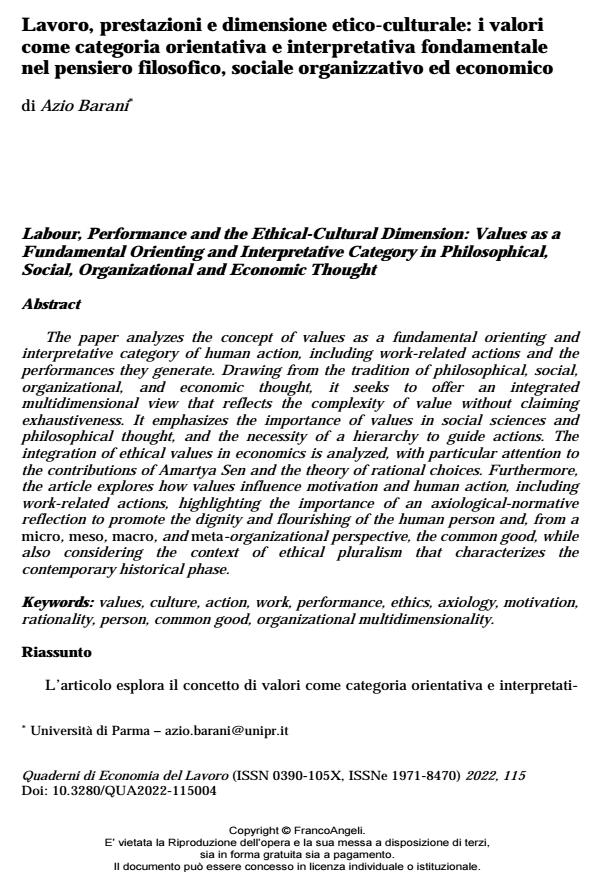Labour, Performance and the Ethical-Cultural Dimension: Values as a Fundamental Orienting and Interpretative Category in Philosophical, Social, Organizational and Economic Thought
Journal title QUADERNI DI ECONOMIA DEL LAVORO
Author/s Azio Barani
Publishing Year 2025 Issue 2022/115
Language Italian Pages 36 P. 79-114 File size 147 KB
DOI 10.3280/QUA2022-115004
DOI is like a bar code for intellectual property: to have more infomation
click here
Below, you can see the article first page
If you want to buy this article in PDF format, you can do it, following the instructions to buy download credits

FrancoAngeli is member of Publishers International Linking Association, Inc (PILA), a not-for-profit association which run the CrossRef service enabling links to and from online scholarly content.
The paper analyzes the concept of values as a fundamental orienting and interpretative category of human action, including work-related actions and the performances they generate. Drawing from the tradition of philosophical, social, organizational, and economic thought, it seeks to offer an integrated multidimensional view that reflects the complexity of value without claiming exhaustiveness. It emphasizes the importance of values in social sciences and philosophical thought, and the necessity of a hierarchy to guide actions. The integration of ethical values in economics is analyzed, with particular attention to the contributions of Amartya Sen and the theory of rational choices. Furthermore, the article explores how values influence motivation and human action, including work-related actions, highlighting the importance of an axiological-normative reflection to promote the dignity and flourishing of the human person and, from a micro, meso, macro, and meta-organizational perspective, the common good, while also considering the context of ethical pluralism that characterizes the contemporary historical phase.
Keywords: values, culture, action, work, performance, ethics, axiology, motivation, rationality, person, common good, organizational multidimensionality.
Azio Barani, Lavoro, prestazioni e dimensione etico-culturale: i valori come categoria orientativa e interpretativa fondamentale nel pensiero filosofico, sociale organizzativo ed economico in "QUADERNI DI ECONOMIA DEL LAVORO" 115/2022, pp 79-114, DOI: 10.3280/QUA2022-115004